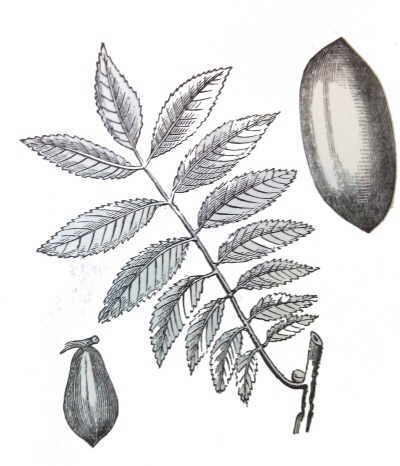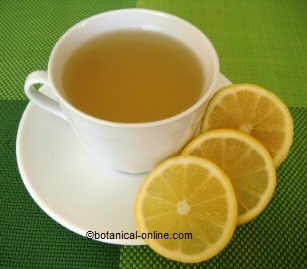Health benefits of plant fiber
The main curative properties of the fiber are:
Anticholesterol properties of fiber
Soluble fiber helps to lower the cholesterol level in the blood. This type of fiber prevents the intestinal absorption of cholesterol produced by the bile for the digestion of food.
Soluble fiber forms a gel that traps cholesterol, that is expelled to the outside without passing into the bloodstream.
The liver needs cholesterol to form fatty acids.
Consequences of reducing cholesterol with fiber
The reduction in cholesterol level is a reduction of risk of vascular accidents. It has been shown that eating foods rich in soluble fiber lowers cholesterol levels by up to 10%.
Among the major foods rich in soluble fiber, we can consider beans and oats.
Most natural plant foods are rich in soluble fiber.
Eating natural food plants is a good way to control cholesterol levels.
 Vegetables are rich in fiber
Vegetables are rich in fiber
Anti-constipation benefits of fiber
Constipation is caused by retention of stool in the intestine. The insoluble fiber intake helps to increase stool leading to an increase in peristalsis (bowel movements) to expel feces outside.
Moreover, without the presence of soluble fiber, stool consistency are often too hard making it difficult to expel it.
The intake of foods rich in soluble fiber help soften stool and facilitate their elimination through defecation.
Eating foods rich in both types of fiber is the most positive way to avoid constipation.
It has been found that not only people with constipation, but other patients with more serious diseases such as irritable bowel syndrome or Crohn’s disease may benefit from ingestion of foods rich in fiber.
Anti-decomposition properties of fiber
When regulating peristalsis, fiber helps to prevent the occurrence of intestinal decompositions produced by the action of pathogenic bacteria on the stool.
When these wastes are kept for a long time in the gut is more likely to develop harmful bacteria which causes bloating, flatulence, etc.
Moreover, fiber helps the body’s beneficial bacteria to multiply and help neutralize harmful bacteria.

Fruits are high in fiber and they contain antioxidant vitamins
Anti-cancer benefits of fiber
Ingestion of foods high in fiber, contributes, as we have seen the expulsion of fecal waste in the intestine. However, through food, in addition to food principles, our body also eats a lot of toxins from the entire process of production and food preservation.
If we expel all these toxins as quickly as possible before they are reabsorbed by the body itself or accumulated in the intestines, we will prevent the emergence of many diseases.
Studies have shown that people who perform a high-fiber diet are less likely to get cancer, such as colon cancer, breast cancer and lung cancer.
Anti-diabetic effects of fiber
The ingestion of foods rich in fiber helps stabilize blood sugar levels in the blood, so the fiber is suitable for feeding of patients with diabetes.
Fiber slows the absorption of carbohydrates thus helping to reduce the typical “highs” of blood sugar with people with diabetes.
Studies in Texas showed that the daily intake of 25 grams of soluble fiber and insoluble fiber was used to positively regulate levels of sugar from a group of diabetic patients.
The American Diabetes Association (ADA) recommends smaller numbers to achieve the same purpose (26 gr. of daily insoluble fiber and 8 gr. of soluble fiber)
Antihemorroidal properties of fiber
Hemorrhoids are usually produced by increased pressure on the veins of the rectum. When defecation is difficult, the pressure on the blood vessels of the rectum can cause hemorrhoids.
A diet rich in fiber help make stools soft and remove them with less effort what will be a good way to prevent hemorrhoids.
People who already have this problem can benefit from eating foods rich in fiber.
A softer stool allows the removal of feces without pain and without causing blood in the feces.
DISADVANTAGES OF EATING TOO MUCH FIBER
What is the recommended fiber daily dose?
It is recommended a minimum daily intake of about 20 gr. fiber, although many doctors recommend that this should be about 30.
Ingestion of very high doses of fiber, especially non-soluble fiber intake in large quantities such as fiber bran, may be responsible for some health problems.
It is recommended eating a variety of vegetables, all rich in soluble and insoluble fibers for a balanced diet. This will be suitable to prevent the following disorders:
Bowel problems when eating too much fiber
The ingestion of too much fiber, especially insoluble, may be responsible for the appearance of intestinal problems such as abdominal pain, flatulence, diarrhea, general malaise.
It is important for people not accustomed to eating plenty of fiber to get used to it starting with small doses that must be gradually increased.
Problems of poor absorption of minerals in high fiber diets
Eating a diet rich in fibers decreases the absorption of some minerals like calcium and iron.
Those who need these minerals with special attention should take into account that the ingestion of fiber amounts in higher doses than the recommended ones could be affected by a deficiency of these minerals.
Foods that produce this malabsorption are bran and whole rice, both very rich in phytic acid.
How much water should we drink with a high fiber diet?
A diet rich in fiber needs a large amount of water intake. Although natural foods contain, in addition to fiber, lots of water, you need to drink plenty of water when you make a diet rich in fiber to prevent the body may have a problem of dehydration.
Ideally, you should drink two liters a day. This is particularly necessary when making a diet with high intake of fiber bran.
![]() More information on fiber.
More information on fiber.








